ALIEN: EARTH – Season One (2025)
When a mysterious space vessel crash-lands on Earth, a young woman and a ragtag group of tactical soldiers make a fateful discovery that puts them face-to-face with the planet's greatest threat.
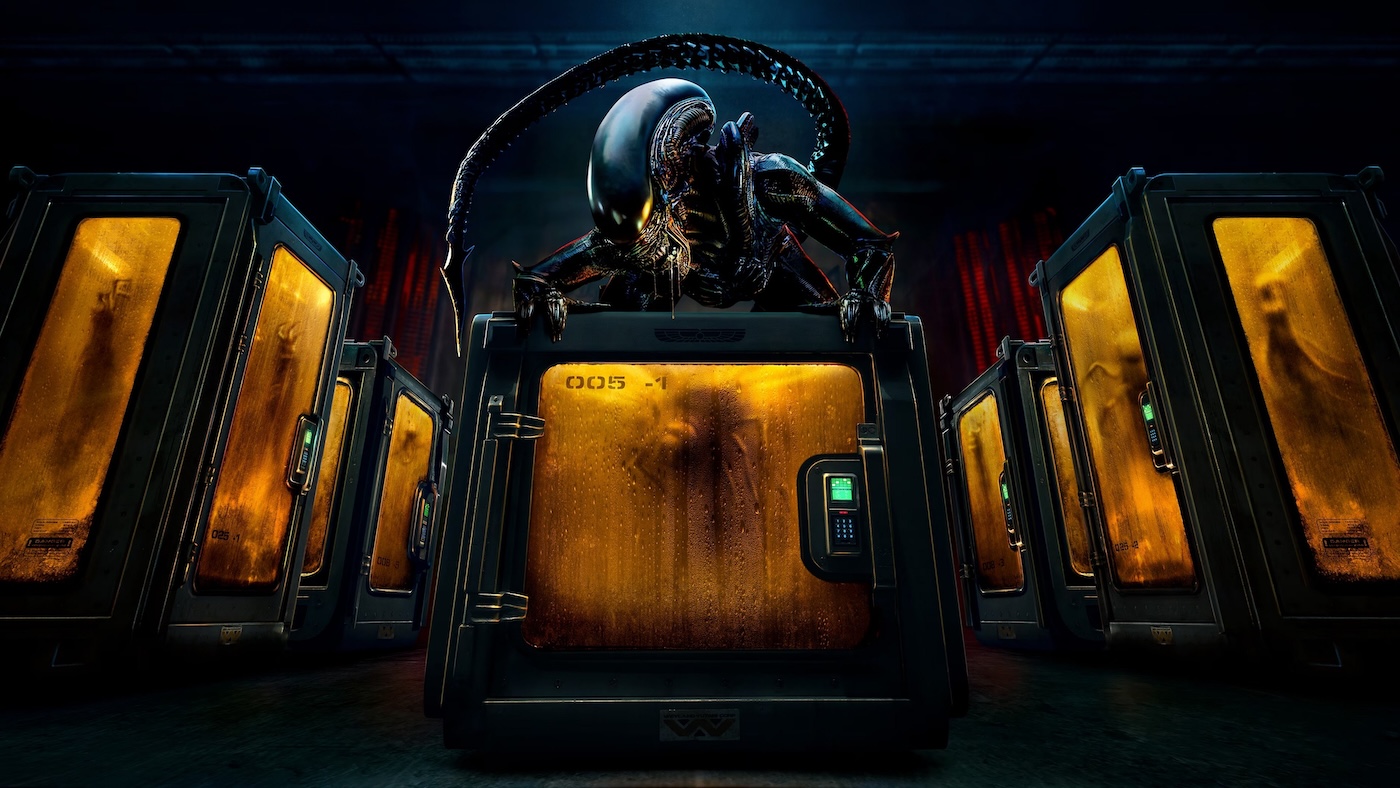
When a mysterious space vessel crash-lands on Earth, a young woman and a ragtag group of tactical soldiers make a fateful discovery that puts them face-to-face with the planet's greatest threat.

Approaching its 50th anniversary, the Alien franchise shows no signs of slowing down. It’s now a multimedia colossus, with video games, comic-books, action figures, and other merchandise keeping the property relevant between the big movies, to help survive any barren periods. Today, Disney owns the Alien IP after buying out 20th Century Fox, and have recently moved away from Ridley Scott’s aborted run of prequels — beginning with Prometheus (2012) and stalling with Alien: Covenant (2017). They’ve decided to instead go back-to-basics with the funhouse horror of Alien: Romulus (2024), and have now taken the franchise’s first step into a new realm: prestige television.
Alien: Earth was developed by writer-director Noah Hawley, who made his name turning an Academy Award-winning movie into a long-form narrative with the Fargo television series, based on the 1996 Coen Brothers film. He also made FX’s unfairly forgotten comic-book series Legion (2017-19), loosely set in the X-Men universe, which was often more style over substance but still eclipses most small-screen superhero fare. Hawley’s success with Fargo was down to avoiding doing a long-form “remake”, by instead creating a separate anthology drama that just happened to take place in the same region. It captured the tone and essence of what the Coen’s accomplished in their film, but with new characters and different ideas.
Hawley doesn’t have the same creative freedom in Alien: Earth, which has to be set within an established timeline of events —specifically, two years before the events of Alien (1979) — but he’s similarly not beholden to recycling the film’s concerns with less money and more time. His solution isn’t too dissimilar to Ridley Scott’s return with Prometheus, who was likewise aware H.R Giger’s xenomorph creature had become overexposed and no longer frightened audiences the same way. Consequently, Scott opted to instead create a more existential sci-fi epic about mankind’s origins and the act of creation itself, although the highfalutin Prometheus’s mixed reception resulted in a sequel with more monster action to satisfy those displeased by his more cerebral choice. Here, Hawley’s decided to tell an Alien story that, in some ways, is more indebted to Ridley Scott’s Blade Runner (1982), with a focus on mostly non-human characters.
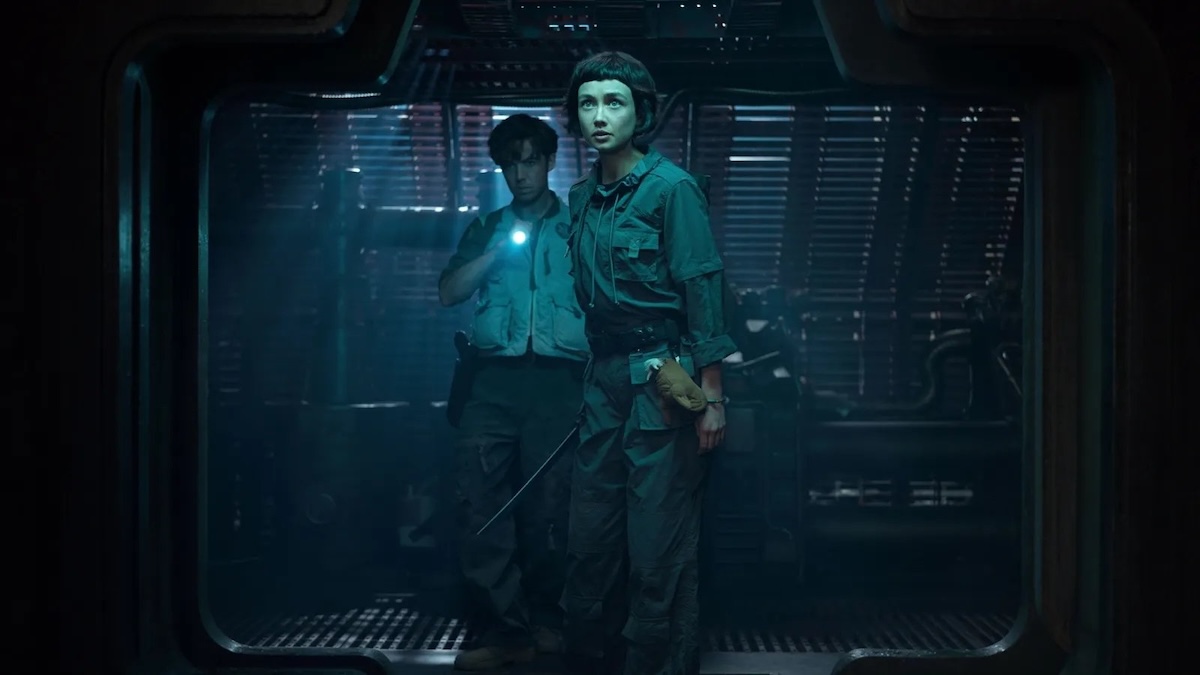
The bravest decision of Alien: Earth is to introduce two new humanoid “species”, as until now we’ve only been familiar with pure ‘Synthetics’ like Ash (Ian Holm), Bishop (Lance Henriksen), David (Michael Fassbender), and Andy (David Jonsson). But text in the opening episode, “Neverland”, reveals there are actually two other types: Cyborgs (humans with technology embedded in their bodies), and Hybrids (Synth bodies with human consciousnesses downloaded into them). Of course, it’s a stretch for Alien purists to accept we’ve never even heard about those other types until now, in a story set before the original films, but one explanation is another fundamental element of the series: the corporations. Specifically, how every Alien story until now has taken place within only one corporation’s area of influence—Weyland-Yutani.
The nefarious company’s been a staple of the Alien franchise in nearly all the movies, and is the true villain of the franchise in many ways. But our belief they’re the only global business around is shattered by Alien: Earth, which reveals that a total of five companies essentially run the world and its space colonies. Alongside Weyland-Yutani is Lynch, Dynamic, Threshold, and Prodigy —the new kid on the block, literally, who are behind the aforementioned Hybrid technology.
Alien: Earth begins in 2120 A.D, with a Nostromo-style spaceship called the USCSS Maginot (owned by Weyland-Yutani) crash-landing in a city run by Prodigy called New Siam. A team of emergency responders are dispatched to look for any survivors, including soldier medic Joe Hermit (Alex Lawther), unaware the Maginot was carrying a menagerie of dangerous extra-terrestrial specimens —including Giger’s notorious xenomorph, but also an “eyeball” that scuttles around on octopus-like tentacles and can control host bodies it attaches itself to, “ticks” that can drain a body of blood in minutes, “flies” that regurgitate lethal acid, and others.
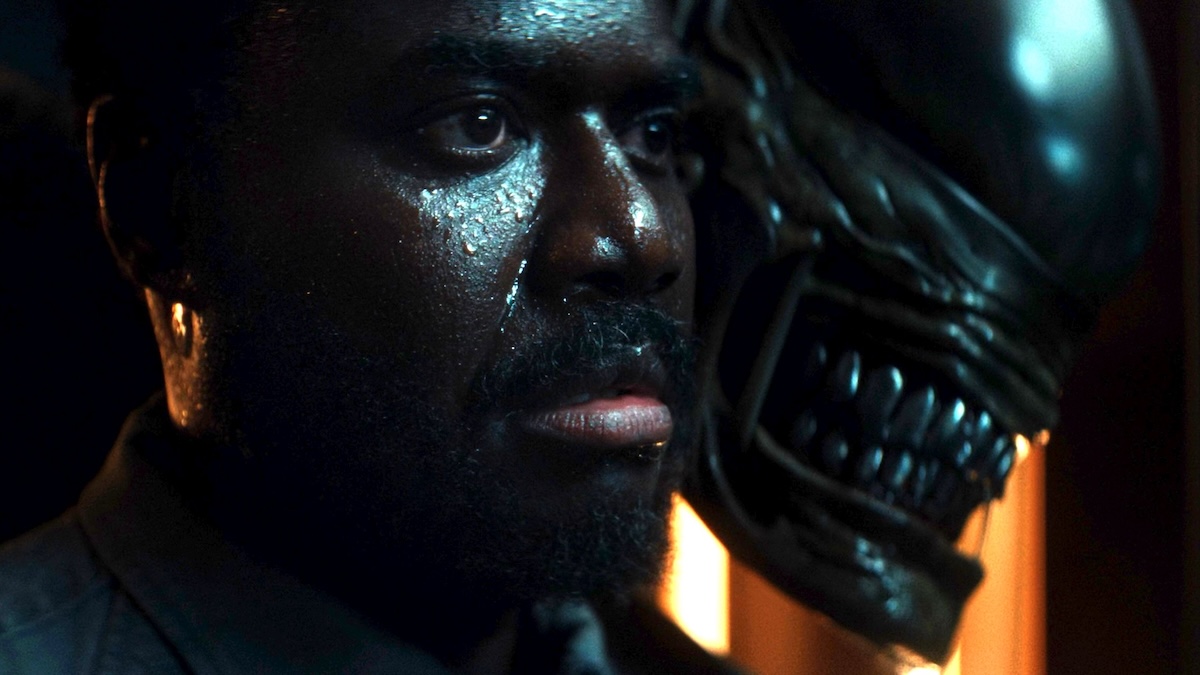
Elsewhere, in the titular Prodigy island research facility of ‘Neverland’, several terminally ill children have agreed to let their consciousnesses be uploaded into Synth bodies, with Marcy Hermit (Florence Bensberg), Joe’s little sister, the first to find herself reborn as the super-strong and agile ‘Wendy’ (Sydney Chandler). And under the leadership of Synth chief scientist Kirsh (Timothy Olyphant), these Hybrid kids are sent to the Maginot’s crash site by Prodigy’s young genius CEO Boy Kavalier (Samuel Blenkin), who believes the Maginot and its contents now belong to him…
One concern with Alien: Earth was that the actual amount of xenomorph action would be greatly reduced, to preserve its shock value, or just because of budgetary limitations. Thankfully, that’s not the case. Most episodes contain a decent amount of the dome-headed beast, and a few instalments have it take more of a central role. And we also have an intriguing focus on aspects of its life cycle the films haven’t touched on too much, like the sperm the “facehugger” impregnates a host with, and even an adolescent form of the xenomorph as it matures between its small “chestburster” state and eight-foot adulthood. While there may be less to discover about the once-mysterious xenomorphs than there used to be, I’m grateful Hawley recognised areas that haven’t been put under the microscope.
But it’s fair to say the series understands it has to put a narrative focus elsewhere. The idea that Weyland-Yutani has competitors shakes things up nicely, and the show does an excellent job of portraying this future as something more nightmarish but plausible than ever before. As real-world companies like Apple, Meta (Facebook), Alphabet (Google), Microsoft, and Amazon continue to wield extraordinary power and influence over our daily lives, it no longer seems a crazy stretch to imagine a global society where humanity’s lost faith in elected governments in favour of becoming subservient to the corporations that provide the amazing goods and life-changing services we’re obsessed with.
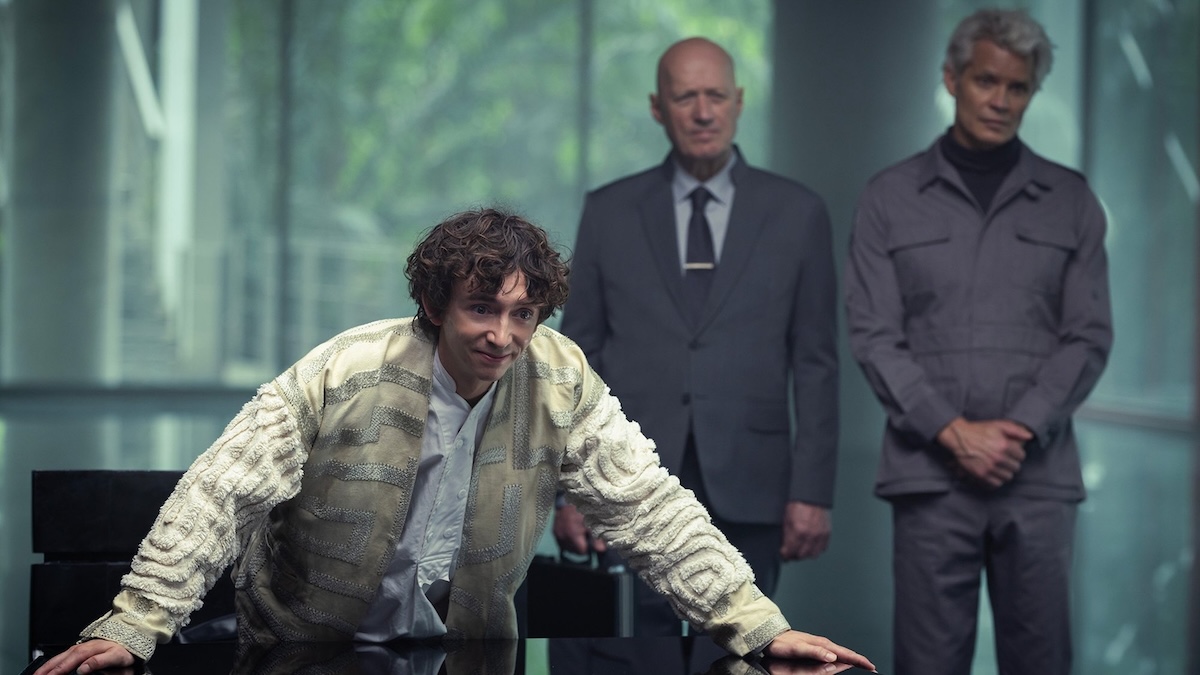
Alien: Earth does a fine job of building environments that look futuristic and cool, but living amidst them are people to exploit or experiment on. We also come to realise that the Maginot’s sole survivor, chief security officer Morrow (Babou Ceesay), has been totally brainwashed into striving to succeed in his mission for Weyland-Yutani — who sent him on a 65-year-long round trip to retrieve these alien specimens, so that upon return his old life and family connections are but memories. Morrow’s willingly sacrificed his humanity and a normal existence in an effort to please his superiors, who once provided him with a cybernetic arm. Even his new boss, Yutani (Sandra Yi Sencindiver), is now the granddaughter of his boss; perhaps a nod to how the eternal life Prodigy’s chasing with their Hybrids is only currently only attainable through corporate legacy and generational inheritance.
The Hybrid children are another example of corporations targeting people too young to make sensible decisions about their own futures, and exploiting the fact they’re terminally ill so have few good options anyway. Boy Cavalier, the genius head of Prodigy, is himself young at heart, in name and nature, as someone who believes kids are inherently superior to adults because they have unfettered imagination. It’s a sad irony of Alien: Earth that these kids finds themselves in “adult bodies” without going through puberty — indeed, they now lack the hormones to experience such innate development — and are manipulated and controlled by every grown-up they encounter in various ways.
Some of the show’s themes and references can be heavy-handed at times. There’s a continuing nod to J.M Barrie’s Peter Pan story, as the children transformed into Hybrids are collectively known as the ‘Lost Boys’ and inherit the names of characters from that classic story — Slightly (Adarash Gourav), Curly (Erana James), Nibs (Lily Newmark), Tootles (Kit Young), and Smee (Jonathan Ajayi). Boy Cavalier himself can be seen as a barefooted Peter Pan figure, refusing to grow up in some respects. The show isn’t subtle about its allusions, as clips from Disney’s animated Peter Pan (1953) play on the ceiling of the operating theatre where the Hybrid process is undertaken. Luckily, there’s enough nuance elsewhere for this to not be a massive problem, and I did love the more subtle connection to Captain Hook and the Crocodile that bit off his hand, after Wendy starts realising she can communicate with a xenomorph (i.e. hear the “tick-tock” of the frightening beast, just as Hook did).
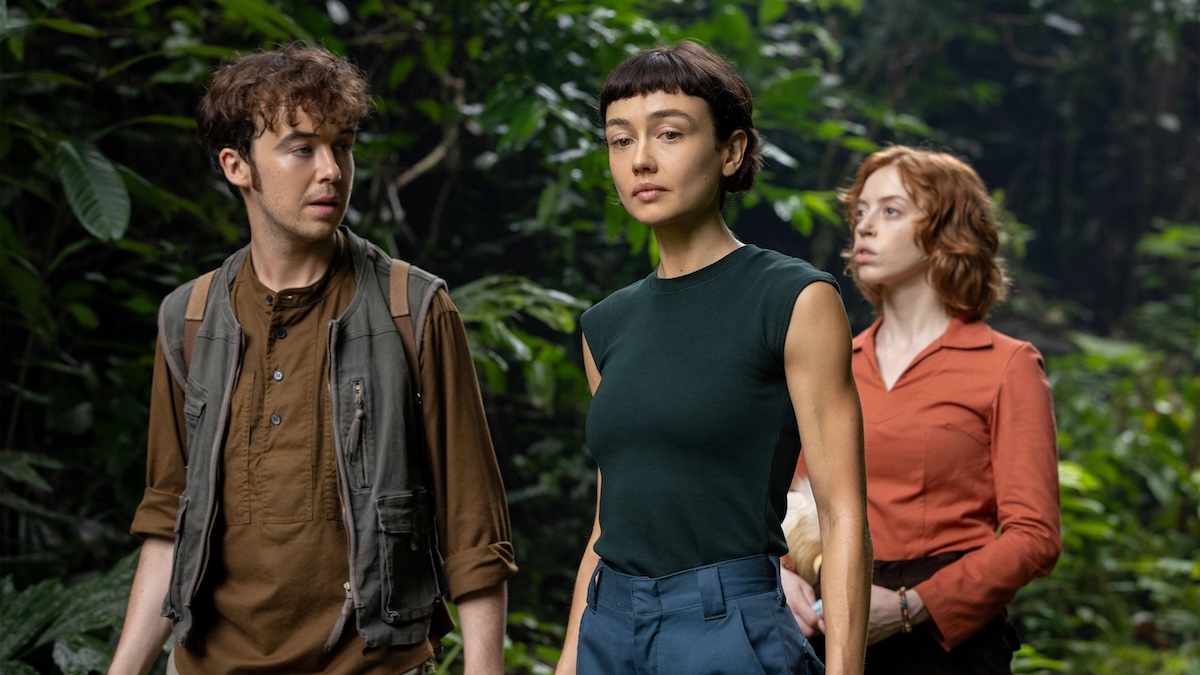
Ultimately, Alien: Earth is a little up-and-down in terms of quality. It’s never outright bad, but it builds up short bursts of steam that soon evaporate with a weaker episode or characters making questionable ideas or decision. And while there’s certainly enough xenomorph action to satisfy fans of the Alien franchise, it’s sometimes hard to shake the feeling this feels more like a Blade Runner TV series that decided to tie itself to the Alien mythology. However, its high points are impossible to ignore. Episode 5, “In Space, No One…” is a particularly effectively hour of sci-fi action horror, which essentially remakes the Nostromo-set second half of the 1979 film but adds more creatures and complications. But then, only a few episodes later, characters are making highly questionable choices just to push the story towards a finale that feels a bit premature.
In terms of production, the budgets of modern US TV are capable of replicating the look of expensive 20th-century Hollywood movies extremely well. While there are still limitations and the major set-pieces are spread around to conserve money, it’s hard to imagine many Alien fans feeling Earth looks cheap or the story felt too small. My only gripe is that the xenomorph itself occasionally felt a little fake, but I appreciate how they didn’t create it only using CGI but had an old-school man-in-suit approach to many of its scenes. It’s just frustrating that the creature is often badly lit, or had to appear outside in a tropical environment that didn’t showcase Giger’s bio-mechanical design well. I have no idea why they set a few sequences in broad daylight, when it made more narrative and visual sense to ensure the xenomorph is cloaked in darkness.
Ultimately, Alien: Earth is a success with caveats. There are times when it feels like a separate sci-fi concept entirely, just utilising Alien franchise’s aesthetic and eponymous monster, but it does find fresh avenues to explore that fans will find intriguing. Unfortunately, come the finale, a few creative decisions don’t hold water and it’s lost a sense of momentum that fed into the peak of the fifth episode. And it doesn’t wrap up a unique earthbound Alien tale, it leaves the door wide open for another season, or more, which I don’t think was the right call. If Alien: Earth becomes a long-running, sprawling, significant part of the franchise’s lore, rather than a hitherto unknown side-story with a few surprises that re-contextualised the original films, it will likely cause more problems than it’s worth — if you care about such things. But at least this first season was fun and intriguing, if a little inconsistent and rushed with its pacing.
USA • THAILAND | 2025 | 8 EPISODES | 2.39:1 | COLOUR | ENGLISH

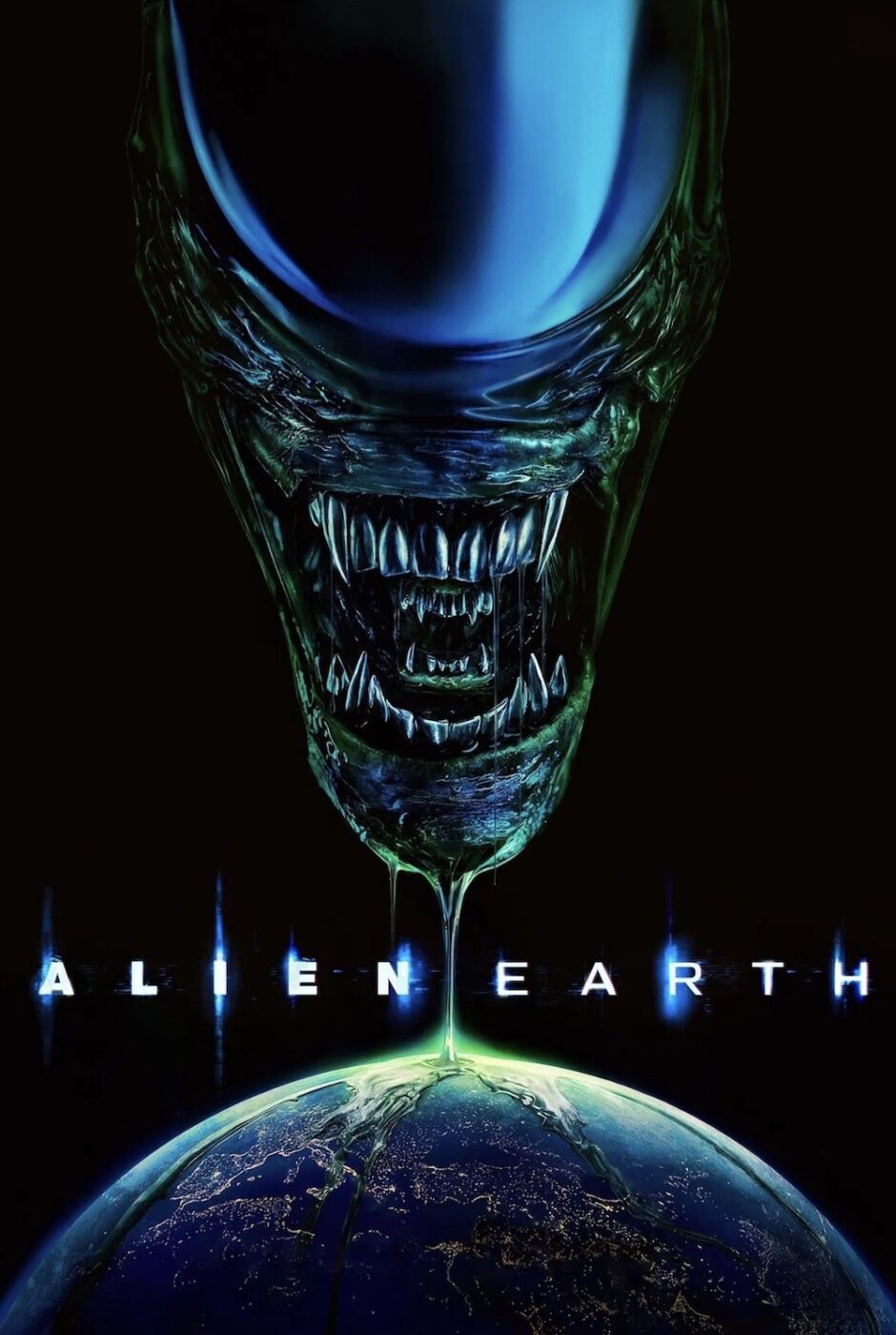
writers: Noah Hawley, Bob DeLaurentis, Bobak Esfarjani, Lisa Long, Maria Melnik & Migizi Pensoneau (based on elements by Dan O’Bannon & Ronald Schusset).
directors: Noah Hawley, Dana Gonzales & Ugla Hauksdóttir.
starring: Sydney Chandler, Alex Lawther, Essie Davis, Samuel Blenkin, Babou Ceesay, Adarsh Gourav, Erana James, Lily Newmark, Jonathan Ajayi, David Rysdahl, Diêm Camille, Moe Bar-El, Adrian Edmondson & Timothy Olyphant.
